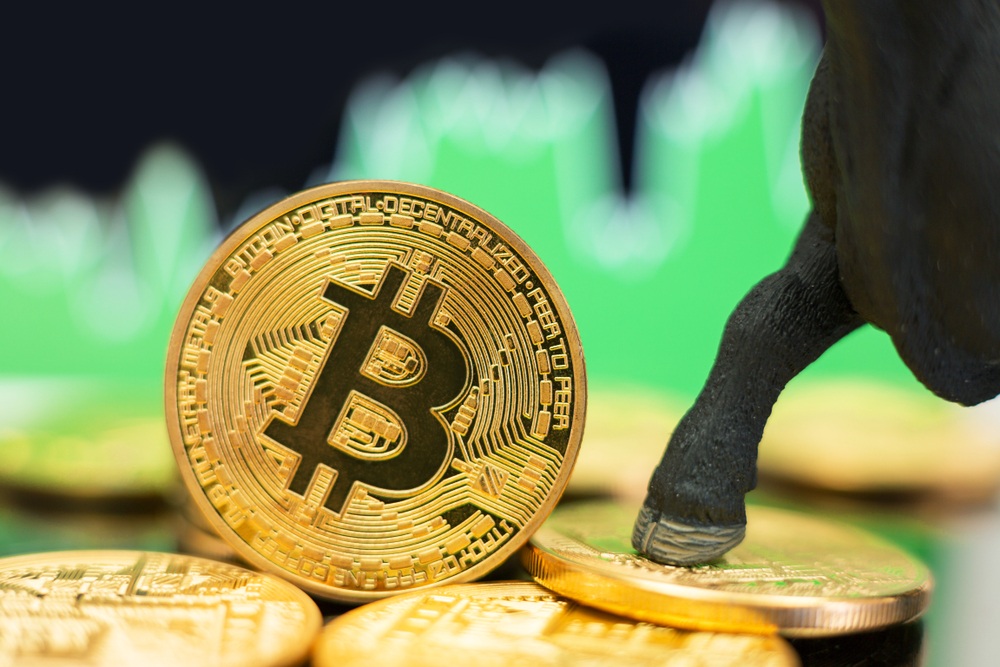The Implications of The Bitcoin Market’s Response to Oil Price War and Coronavirus

As a crypto participant, you must be used to the drastic price swings of cryptocurrencies. However, crypto’s current volatile price trend is peculiar as it coincides with a plethora of events that have caused economies to stumble. For one, the spread of the Covid-19 has had a devastating effect on the global market. To make matters worse, the oil price war between Saudi Arabia and Russia has kicked off a domino effect that has seen markets that had, to an extent, withstood the Covid-19 storm crash to new lows. Surprisingly, the crypto market has joined the list of casualties amid claims that bitcoin provides the type of value retention characteristics found in investment vehicles known as safe havens.
In this article, I will explore the implications of bitcoin’s recent price slump and discuss the sudden realization that the crypto market might have a stronger correlation to traditional markets than we thought.
The Correlation Between Bitcoin and Traditional Markets

The Correlation Between Bitcoin and Traditional Markets
In January, I published an article titled “The US-Iran Conflict Is Another Template Proving the Efficacy of Bitcoin as A Safe Haven.” While using the tension between the US and Iran as a case study, I explored the viability of bitcoin as a store of value. Halfway through the article, I identified bitcoin’s lack of correlation with traditional assets as a testament of the digital asset’s tendencies of providing investors a refuge when political and economic factors trigger the crash of conventional markets.
Likewise, I explored the price movements of gold, an asset established as a safe haven, to provide a template to test bitcoin’s viability as a store of value. The article reads:
“While exploring how gold and bitcoin reacted to the recent military altercation between the US and Iran, I noticed that the gold market experienced increased volatility that saw the price shoot up from a stable 1,552.42 USD/oz on the 5th of January to a new high of 1,598.89 USD/oz on January 7. Since then, the price of gold has dipped, which coincides with the United States’ congress move to limit Donald Trump’s autonomy in the ongoing assault on Iran.”
Once I had isolated details regarding the volatility of the price of gold, it was easy to conclude on the correlation between the prices of bitcoin and gold. I added:
“The same is true of the bitcoin market, as price rallied just about the same time that the price of gold began to surge. And the price of bitcoin reached new highs on January 7, as the tension between the two nations heightened. Amazingly, the price dipped just as it was noted in the gold market. Without any doubt, there is a strong correlation between the reactions of both markets to the events unraveling in the geopolitical scene. And there is every reason to believe that bitcoin might have taken its place as one of the reliable assets, even as the stock market in the United States experienced a downswing resulting from the uncertainties trailing war provoking actions on the part of both countries.”
And even though crypto had shown resilience against conventional trends back in January, the reverse is the case in the ongoing economic onslaught. On Monday, bitcoin fell by 15%. If bitcoin was truly a safe haven, then we shouldn’t be experiencing this downturn. In its true sense, an asset classified as a safe haven ought to thrive in these circumstances. Simply put, a safe haven should negate global market price movements and thrive when other investment schemes plunge. However, this is not the case with the crypto market as a whole, as market data shows that bitcoin susceptibility to the adverse effects of the oil price crisis and the Covid-19 pandemic.
In the aftermath of the crash of the crypto market, experts and analysts have come up with excuses for this discrepancy. Some, on the other hand, revealed their disbelief that bitcoin was unable to exhibit stronger resistance to the slump of conventional markets. One of such individuals is Brian Armstrong, CEO of Coinbase. Armstrong tweeted that he expected the opposite of bitcoin’s response to the political and health crises that had pushed economies to the brink of recession.
Also, known bitcoin antagonist, Peter Schiff, in a series of tweet, capitalized on bitcoin’s underwhelming price movement to downplay the claim that the asset could function as a store of value. A similar notion was put forth, as a professor of international business at Duke, Campbell Harvey, stated the obvious and questioned bitcoin’s emerging status as a safe haven. Harvey told Cointelegraph:

Duke, Campbell Harvey
“Now, if these cryptos were safe havens, then you would expect may be no change in their value or maybe even an increase in value. But that’s definitely not what we’ve seen. The cryptos got battered and dropped by more than 10%. So that suggests to me, in a particular situation of great stress where people are realizing that there’s systemic risk unfolding, the stock market drops as expected, people flee to safe assets, but they didn’t flee to cryptos, they fled to the U.S. 10-year bond.”
Why Did the Price of Bitcoin Fall?

Following the unexpected downswing of bitcoin’s price, analysts have gone to work to analyze the factors that might have caused the price of bitcoin, a potential store of value, to tank. Well, the most glaring factors are the unrelenting spread of the Covid-19, which WHO has recently declared a pandemic, and the price war that triggered a slump in the price of crude oil. In theory, what many had expected was that investors would flock into asset markets tagged as safe havens, including the gold and the bitcoin market. However, this was not the case. Instead, investors preferred the United States’ 10-year treasury bond, which has experienced a spike in demand since major markets plunged.
Head of trading at ItBit/Paxos, Paul Ciavardini, believes that the fall in the price of bitcoin is linked to the actions of institutional investors who are leaning towards doing away with volatile assets. Ciavardini explained:

Head of trading at ItBit-Paxos, Paul Ciavardini
“My guess is that we are seeing some traditional institutions, that also have either a crypto side pocket or something like that, lighten up on overall risk with what is happening in the equity and bond market.”
In a similar vein, the CEO of Galois Capital, Kevin Zhou, reiterated that it seems that investors had favored liquid assets and sold risky assets. Zhou asserted:

the CEO of Galois Capital, Kevin Zhou
“As people lose discretionary income and short-term liabilities get called in, all risky assets are correlated on the downswing for the short term and that includes both traditional markets as well as crypto.”
Likewise, Bill Hermann, CEO of Wilshire Phoenix, told Cointelegraph that it was normal for investors to choose to sell their bitcoin rather than hold on to the digital asset. Hermann believes that the “recent drop in the price of bitcoin is a result of the sudden and fierce decline among most asset-classes over the last several weeks.” According to him, investors were simply acting on impulse.

Bill Hermann, CEO of Wilshire Phoenix
He added:
“In times of extreme volatility, which is often followed by panic — most retail investors, whether it’s Bitcoin or in equities, sell first and ask questions later. Investors needed to raise cash and quickly — so everything was sold. I think that once the dust settles, Bitcoin and some other assets will be on sale.”
While countering this theory, famous crypto YouTuber, DataGash, suggested that the massive sale of crypto assets might not only be a result of the impact of panic in the global market. On the contrary, he hypothesized that the sell-off of stashed digital assets linked to the PlusToken scam might have driven down the price of bitcoin. He alleged in his recent YouTube video:
“It might not just be that there’s global fear in the sense of traditional markets — and that might be having a weighing effect on crypto — but it might actually have to be that there’s an actual sell-side pressure that’s pretty much guaranteed to hit us eventually… It might be the time where they’re finally looking to liquidate it and finally move some of that money out, laundering it and eventually exiting it out to cash.”
How Does This Turn of Events Affect Bitcoin’s Status as A Viable Store of Value?

How Does This Turn of Events Affect Bitcoin’s Status as A Viable Store of Value
Needless to say, the slump of bitcoin’s price has hurt its viability as an ideal portfolio diversification investment class for moments like this. The prevailing argument, as explained by Campbell Harvey, is that investors ditched crypto when the chips were down. However, this notion is not only prevalent in the bitcoin market. Instead, gold, which is perhaps the most revered safe-haven asset, has also experienced similar downswings. This has led people to have second thoughts regarding the immunity of so-called safe havens to economic crises as devastating as this one is proving to be.
Hence, I can only conclude that there is little or no respite for investors in this turbulent phase of the global market. From what I have seen so far, it is difficult to single out an asset market immune to the impacts of Coronavirus and the oil price wars. Rather, people are more interested in holding liquid cash, even though it might entail them to sell off a large fraction of their assets, be it cryptocurrencies or traditional assets. If gold is showing correlation to traditional markets, then one can assume that no asset is safe.
Or maybe we are just getting ahead of ourselves and haven’t given Bitcoin and the crypto market ample time to prove their worth. Some believe that bitcoin is bound to bounce back when investors identify that price slumps could be a blessing in disguise. The downturn of the bitcoin market offers investors an opportunity to buy at a low in anticipation of bitcoin halving scheduled for May. To this bunch of optimists, the bitcoin price rally is inevitable, bearing in mind that the upcoming cut in the supply of bitcoin will drive the price of the digital asset up. Notwithstanding, none of this assertion is etched in stone. There is not enough historic data to base these projections on. When it comes to the immature and volatile crypto market, nothing is certain.
Regardless of the short or long-term prospect of the value of bitcoin, one thing remains constant: The current state of the global market and its causative factors highlight the importance of Bitcoin and decentralized assets. Bitcoin evades the sort of political influence that pushed the price of crude oil to new lows. No single entity is powerful enough to disrupt the bitcoin market just as Saudi Arabia did to the oil market. To negate inflation, the bitcoin protocol comes with a functionality that reduces the supply of bitcoin roughly every 4 years. And so, the network has a working model that curtail inflation and ensure that there isn’t an oversupply of bitcoin that could force its value to fall drastically.
On the other hand, the oil market is susceptible to inflation, as witnessed when Saudi Arabia recently moved to increase the supply of crude oil, which had devastating effects on the global price. The apparent lack of resistance of traditional assets to governments’ political exploits shows why decentralized assets are viable additions to the investment landscape. For what is worth, even if bitcoin doesn’t survive the current onslaught, nevertheless, the asset has all of the technology and framework necessary to bypass the influence of central authorities as well as inflation, in the long run.

Tuur Demeester
Just as Tuur Demeester nicely puts it “, what you want in a period of crisis is options.” investors will likely be “attracted to an asset that’s liquid. … There are some people who are being forced to sell [bitcoin]. But, overall, we’re in a very healthy [bitcoin] market.”
Hence, bitcoin will remain an attractive diversification tool for retail and institutional investors in the foreseeable future. This assertion rings true because the digital asset provides cover against externally influenced inflation, irrespective of short-term downswings that have become part and parcel of a very volatile market. In other words, the price slump of bitcoin is a temporary setback, which does not faze investors familiar with the crypto terrain.
